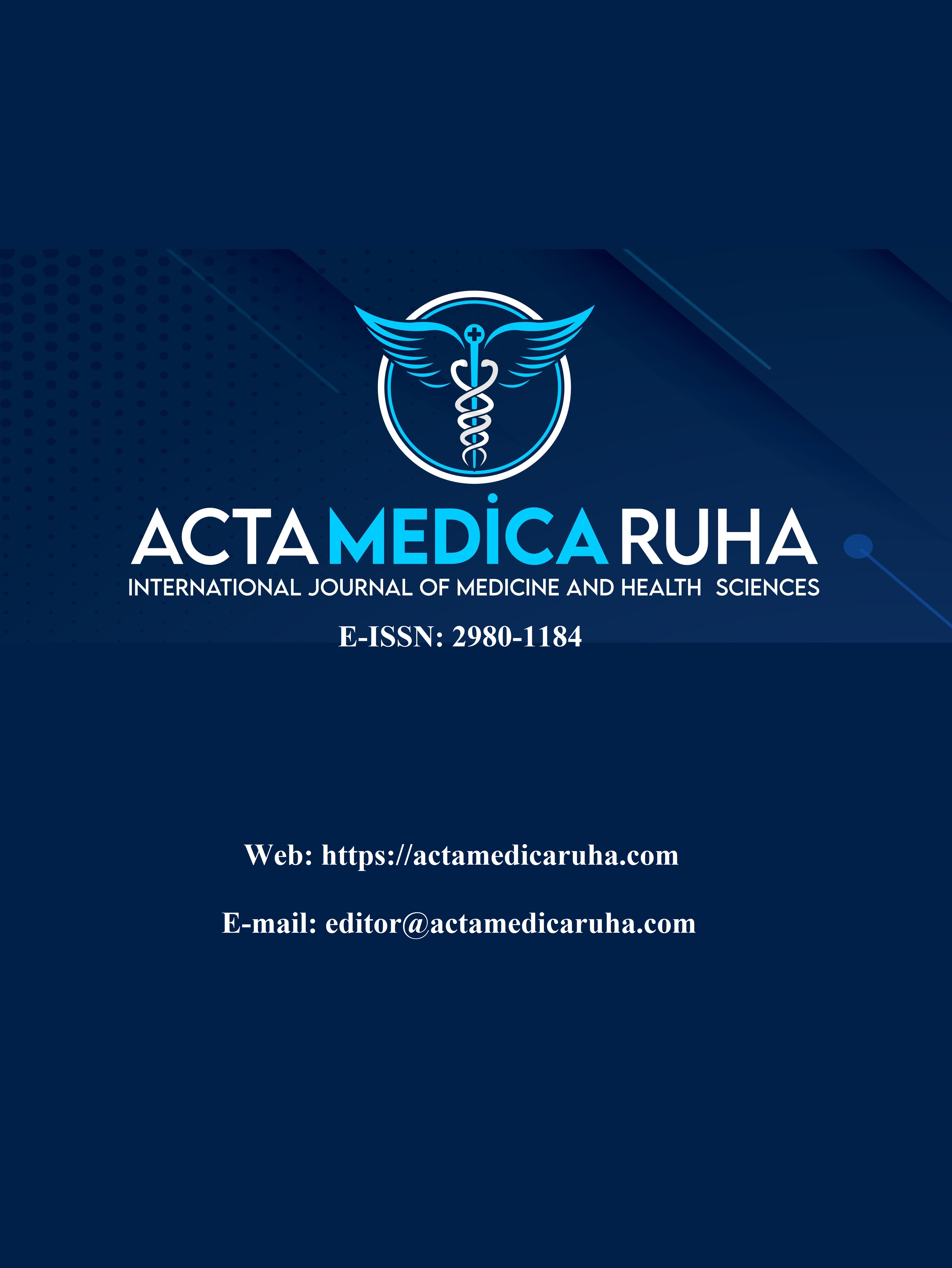Incidence of Postpartum Depression and Influencing Factors: A Cohort Study from Turkey
Research Article
DOI:
https://doi.org/10.5281/zenodo.11373938Keywords:
Woman, Pregnancy, Postpartum Depression, Postpartum Depression Risk Factors, Cohort StudyAbstract
Objective: Postpartum depression, one of the common mental problems in the perinatal period, is an important public health problem that needs to be diagnosed and intervened in the early period. This study aimed to determine the incidence of postpartum depression and its affecting factors.
Method: The study is cohort-type. Data were collected using the Personal Information Form, Multidimensional Scale of Perceived Social Support (MSPSS), State Anxiety Inventory (SAI)/Trait Anxiety Inventory (TAI), and Edinburg Postpartum Depression Scale (EPPDS).
Results: The incidence of postpartum depression in women is 13.5%. Postpartum depression levels are higher in those who have low MSPSS scores and TAI scores and those who think that the baby has a negative impact on their marriage (p<0.05). However, the negative impact of the baby on marriage is the most crucial factor that increases the risk of postpartum depression by 5.3 times.
Conclusion: The study found that postpartum depression is still a common problem among mothers and that the negative impact of the baby on the marriage is the critical factor that increases the incidence of postpartum depression. In order to prevent postpartum depression, it is recommended to implement co-parental adjustment support programs for parents.
References
World Health Organization. WHO guideline for the integration of perinatal mental health into maternal and child health services (2022). https://www.who.int/publications/i/item/9789240057142 (Accessed on October 8, 2023).
Hahn-Holbrook J, Cornwell-Hinrichs T, Anaya I. Economic and health predictors of national postpartum depression prevalence: a systematic review, meta-analysis, and meta-regression of 291 studies from 56 countries. Front Psychiatry. 2018;8:248.
American Psychiatric Association. Diagnostic and Statistical Manual of Mental Disorders DSM-5. Washington, DC: American Psychiatric Publishing; 2013.
Alshikh Ahmad H, Alkhatib A, Luo J. Prevalence and risk factors of postpartum depression in the Middle East: a systematic review and meta-analysis. BMC Pregnancy Childbirth. 2021;21(1):1-12.
Karaçam Z, Çoban A, Akbaş B, Karabulut E. Status of postpartum depression in Turkey: A meta-analysis. Healthcare for Women International. 2018;39(7):821-841.
Goweda R, Metwally T. Prevalence and associated risk factors of postpartum depression: a cross sectional study. Archives of Clinical Psychiatry (São Paulo). 2020;47:106-109.
Al Dasoqi KY, Malak MZ, Alhadidi M, Subih MM, Safadi R. Postpartum depression among first-time Jordanian mothers: levels and associated factors. Psychology, Health & Medicine. 2023;28(6):1527-1539.
Della Corte L, La Rosa VL, Cassinese E, et al. Prevalence and associated psychological risk factors of postpartum depression: a cross-sectional study. Journal of Obstetrics and Gynaecology. 2022;42(5):976-980.
Arante FO, Tabb KM, Wang Y, Faisal-Cury A. The relationship between postpartum depression and lower maternal confidence in mothers with a history of depression during pregnancy. Psychiatric Quarterly. 2020;91:21-30.
Xiong R, Deng A. Prevalence and associated factors of postpartum depression among immigrant women in Guangzhou, China. BMC Pregnancy Childbirth. 2020;20(1):1-7.
Inthaphatha S, Yamamoto E, Louangpradith V, et al. Factors associated with postpartum depression among women in Vientiane Capital, Lao People’s Democratic Republic: A cross-sectional study. PLoS One. 2020;15(12):e0243463.
Gelaye B, Rondon MB, Araya R, Williams MA. Epidemiology of maternal depression, risk factors, and child outcomes in low-income and middle-income countries. The Lancet Psychiatry. 2016;3(10):973-982.
Eker D. Factor structure, validity and reliability of the revised form of the multidimensional perceived social support scale. Turkish Journal of Psychiatry. 2001;12:17-25.
Öner NLC A, Le Compte A. State-trait anxiety inventory manual. Istanbul: Bogazici University Printing House; 1983.
Engindeniz AN, Küey L, Kültür S. Turkish version of the Edinburgh Postpartum Depression Scale: Reliability and validity study. In Article in Turkish. Spring Symposiums I Book: Psychiatric Organization of Turkey. 1996;51-2.
Özcan NK, Boyacıoğlu NE, Dinç H. Postpartum depression prevalence and risk factors in Turkey: a systematic review and meta-analysis. Archives of Psychiatric Nursing. 2017;31(4):420-428.
Durukan E, İlhan MN, Bumin MA, Aycan S. Frequency of postpartum depression and quality of life in mothers with babies aged 2 weeks to 18 months. Balkan Medical Journal. 2011;(4):385-393.
Slomian J, Honvo G, Emonts P, Reginster JY, Bruyère O. Consequences of maternal postpartum depression: A systematic review of maternal and infant outcomes. Women's Health. 2019;15:1-55.
Ramos KC, Konopka CK, Costa AG, et al. Risk factors associated with postpartum depression in a high-risk maternity clinic: a cross-sectional study. Minerva Obstetrics and Gynecology. 2023;75(1):7-17.
Alzahrani J, Al-Ghamdi S, Aldossari K, et al. Postpartum depression prevalence and associated factors: an observational study in Saudi Arabia. Medicina. 2022;58(11):1595.
Elmagd MH, Albokhary AA. Postpartum Depression and its relation to social support and marital satisfaction. Development. 2021;15:16.
Shang X, Li L, Niu C, Liao Y, Gao S. Relationship between social support and parenting sense of competence in puerperal women: Multiple mediators of resilience and postpartum depression. Frontiers in Psychiatry. 2022;13:986797.
Çankaya S, Alan Dikmen H. The effects of family function, relationship satisfaction, and dyadic adjustment on postpartum depression. Perspectives in Psychiatric Care. 2022;58(4).
Keles E, Bilge Y, Kumru P, Celik Z, Cokeliler I. Association between perceived social support, marital satisfaction, differentiation of self and perinatal depression. Northern Clinics of Istanbul. 2023;10(2):181-188.
Wedajo LF, Alemu SS, Jarso MH, Golge AM, Dirirsa DE. Late postpartum depression and associated factors: community-based cross-sectional study. BMC Women's Health. 2023;23(1):280.
Downloads
Published
How to Cite
Issue
Section
License
Copyright (c) 2024 Acta Medica Ruha

This work is licensed under a Creative Commons Attribution 4.0 International License.









